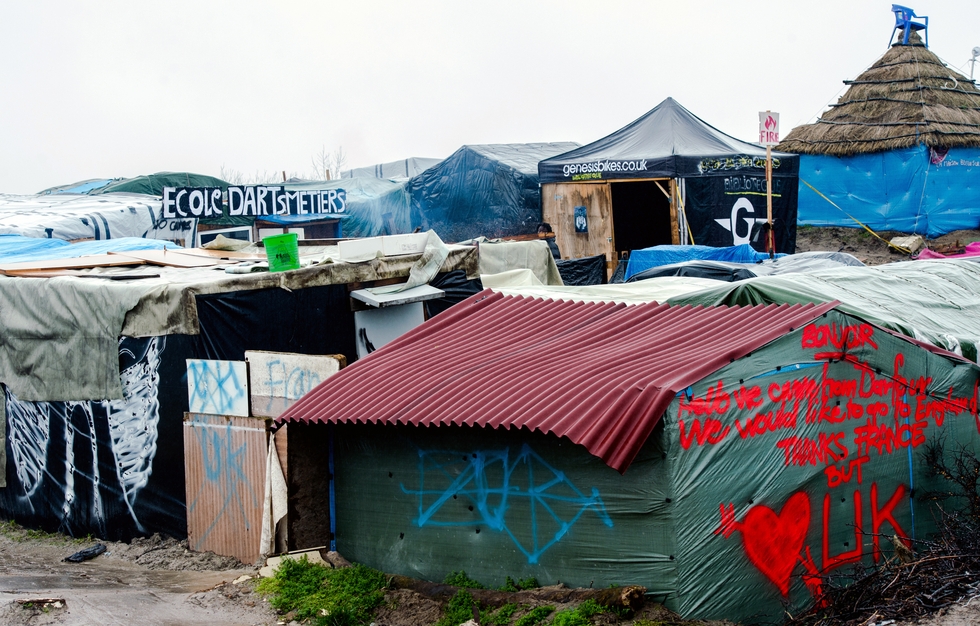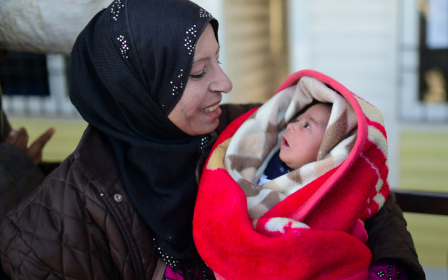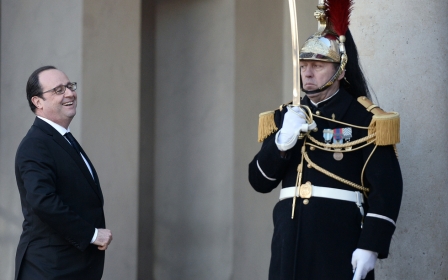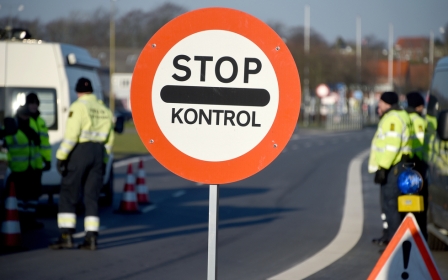Calais refugees: Escape from war but the traumas continue

As the threat of eviction that refugees in France's Calais "Jungle" is delayed by a French court, the temporary sigh of relief won't be enough to ease the psychological traumas of the camp's inhabitants.
It remains unclear exactly when the French government will destroy the refugee camp, but one thing is for sure: they may be far from the wars they fled, but the battle for survival is not yet over.
Refugee flows from the Middle East to Europe have never been so extreme and the effects are being felt by all communities – European residents worried about pressure to local services, civil society groups stretched to capacity and, of course, no-one is feeling the strain more than those in the centre of the "European Migrant Crisis" – the migrants themselves.
It’s the term "migrant," however, that is the server of disinformation in this conundrum because that is what a substantive perception is of the crisis – that along with those perhaps legitimately fleeing conflict is the opportunistic economic migrant that many are taking exception to.
Economic migration is not a crime but that is a moot point in this crisis as the vast majority of "migrants" in this context are refugees fleeing conflict and mostly from Syria and Iraq. They will have been faced with horrors the likes of which most of us have never seen; they may have witnessed loved ones dying, at the very least they have endured hard, arduous journeys and the impact that has on someone is not to be taken lightly.
For many, the end goal is England – to be reunited with family or through some illusion that it represents Europe’s American dream. But with a surprisingly fortified border, many transition through Calais waiting for their opportunity to reach UK soil. And so they wait in the absence of any official UNHCR camp, in a makeshift enclave they labelled the Jungle.
Several months ago, conditions within the Jungle were ironically not even fit for animals - the lack of facilities, hygiene standards, spread of disease and waste present in the camp was shocking. Several months later, while conditions still do not meet international requirements, improvements have been made from health and safety to medical attention and the French state, through legal action taken against them, they have had to provide minimum facilities.
Better conditions, more tension
As one aid worker told me, people definitely smell cleaner. It’s the aid workers, charities and volunteers that are helping to provide whatever support they can in the absence of more institutional hands and as is usually the case in community networks in camps, communal spaces have been built to try and create respite from the everyday toll of transitory migration.
In contrast to this improvement, refugees have been suffering from increased insecurity, and this from the state as well as local anti-migrant militias. So-called "punitive" measures are being taken against the camps’ residents for daring to try and jump lorries to England and the Jungle is experiencing an increasing rate of eviction, displacing thousands of the camps’ residents. In already overcrowded conditions there is nowhere for these refugees to go.
This is creating yet another stress trigger to their situation and, as one psychological expert explained to me, the amount of stress factors they are already experiencing in a short amount of time can lead to various psychological disorders.
Already, aid workers in the camp are describing how they are feeling the tension rise. They are noticing resident’s behaviour change. Aggression, anti-social behaviour, anxiety and depression are some of the disorders, anecdotally, now evident among residents. Pre-existing issues, perhaps post-traumatic stress disorder or other existing mental health issues, will only be exacerbated.
Psychological issues amongst refugees is common for obvious reasons; but beyond the obvious of being torture survivors, sustained hardship, loss and deprivation, there are even feelings associated with a lack of routine or a sense of responsibility towards family back in their countries of origin. When the basic needs are also not being met then this is another stress factor on top of many others.
Psychosocial support missing
The challenges of providing psychosocial support in this context are not few. Even within official UNHCR settings, the provision of psychosocial support is not prioritised, as the struggle to meet basic needs must be the first and foremost consideration. It is therefore not hard to see why this is lacking in a setting such as the Calais jungle.
There may also be cultural barriers in providing support in the conventional form, as receiving counselling is often perceived as something reserved for a "crazy person"; however, this is why communal spaces such as religious buildings or even the Dome arts centre and theatre, in the south part of the camp – the latest area to be subject to eviction – has been so crucial.
Faith is a very important space for people to channel their stress and the arts centre has been instrumental in helping "wound up" young men to centre energies on activities like karate, especially after the camp is tear gassed or bulldozers arrive to take down the last church and mosque in the camp.
The Mental Health and Psychosocial Support (MHPSS) network has recognised the challenges of providing this type of support in the context of the European migration crisis and has issued guidance to address these challenges and provide a universal protocol for front-line workers.
They describe 12 key principles of support provision, all of which are compromised within Calais’s context.
Treating people with dignity and respect and supporting self-reliance is principle number one, but refugees in Calais are a target of "punitive" action by the state, fascist attacks and media objectivity.
Front-line workers should have adequate psychological first aid training, a reality not always met especially considering the nature of volunteership in Calais, which sees a turnover of volunteers every few days or weeks.
Information provision on their rights and what to expect onwards in their journeys - some services do exist such as the legal centre, but not enough and this information provision, particularly on what refugees can expect when they reach England and the asylum process, would make a large impact on their expectations.
Help for most vulnerable
Guidance on referral of those with mental health illnesses or prioritisation of those most vulnerable such as children or those with disabilities are impossible without any infrastructure to do so.
In the latest eviction, Help for Refugees have estimated that 300 unaccompanied minors will be affected.
The new mental health centre is in the part of the camp marked for destruction and several religious buildings have been bulldozed, which makes the recommendation of culturally relevant interventions impossible. Enabling a structure for family support is folly when in many instances families are kept apart as they try and rejoin each other in England.
If states that sign up to international instruments have obligations to provide minimum humanitarian support, psychological support should be included within that. Under human rights laws, refugees, as all other global citizens, have the right to health, and if we take the definition provided by WHO in its fullest definition, then mental health is part and parcel of the deal.
At the very least, signatories to such standards should not be creating an atmosphere that does more harm than good.
- Sophia Akram is a researcher and communications professional with a special interest in human rights particularly across the Middle East and Asia.
The views expressed in this article belong to the author and do not necessarily reflect the editorial policy of Middle East Eye.
Photo: The "Jungle" camp in Calais, France on 22 February, 2016 (AFP).
New MEE newsletter: Jerusalem Dispatch
Sign up to get the latest insights and analysis on Israel-Palestine, alongside Turkey Unpacked and other MEE newsletters
Middle East Eye delivers independent and unrivalled coverage and analysis of the Middle East, North Africa and beyond. To learn more about republishing this content and the associated fees, please fill out this form. More about MEE can be found here.





